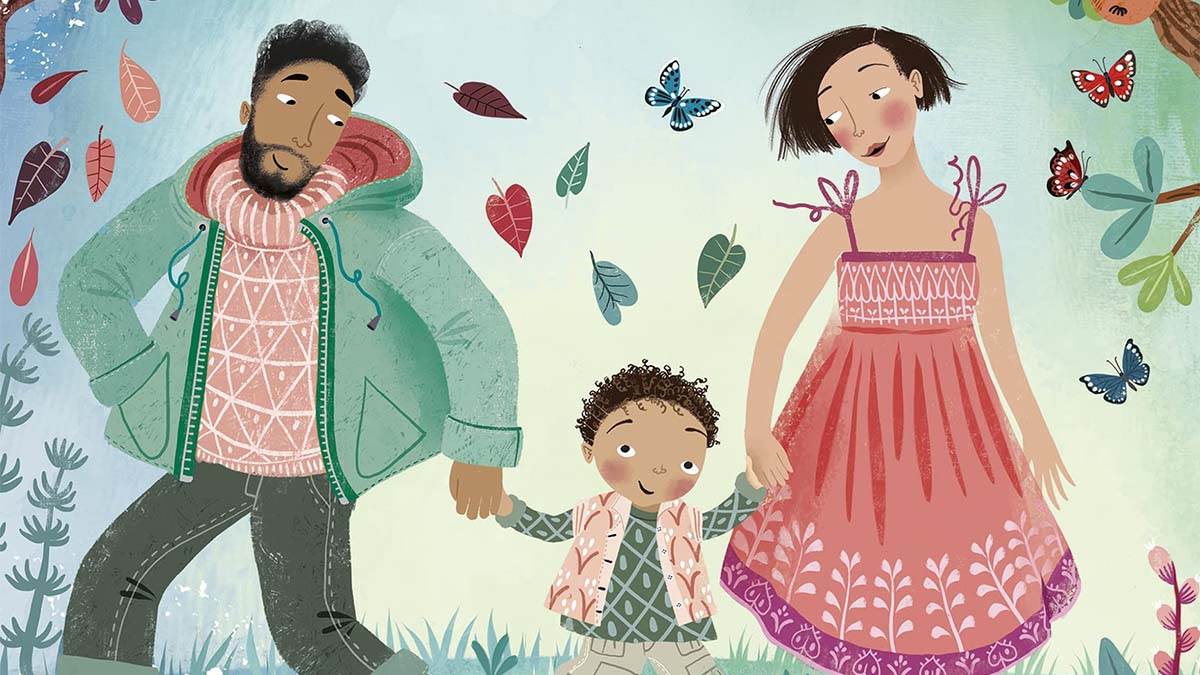Top tips for using books to talk to children about separation or divorce
Published on: 10 November 2022
Everything Changes author Clare Helen Welsh shares tips for families who want help telling children about a separation or divorce.

Illustration by Åsa Gilland, from the front cover of Everything Changes
A family break-up can be a very hard thing for children to process. It can be hard for everyone to process. Books can offer a space for all involved to talk about their feelings and navigate their emotions.
How to talk to children about a separation or divorce almost definitely depends on the age of the child, the child's personality, and the facts surrounding the relationship, as well as how the adults involved are handling things.
However, one thing that applies to all circumstances is change - some big, some small, but changes are inevitable and often the cause of much worry.
Children may wonder whether they will have to change schools, or whether they will still see their friends, family members and pets. They might wonder if the separation is their fault or if they did something wrong and will likely want reassurance that they are still loved.
This was the impetus for Everything Changes - a picture book that explores the difficult thoughts and feelings that children might experience when their parents can't live together any more.
Everything Changes is a sensitively-told tale of a child who feels sad, worried and angry when Mummy and Daddy split up. But as time passes and seasons change, it seems the hard times might not always be so hard.
It's a fictional story inspired by personal experience that adults can use to promote discussion – a healthy first step to managing a problem.
Using books to talk about separation and divorce
Since writing Everything Changes, I've found several great books on separations and expanding families. There's something for a range of ages, some that feature mums and dads and some that feature bright colourful characters.
They cover concerns such as introducing new partners and which house is home, and they reassure children about the future, which might feel uncertain.
My biggest tip when using stories therapeutically is to read the book alone before sharing it with a child. This will give grown ups time to process the themes and ensure they are prepared for the questions, comments and emotions that could arise.
Here are a few suggestions of useful books:

- Emily's Blue Period by Cathleen Daly and Lisa Brown
- Remixed by Arree Chung
- My Big Fantastic Family by Adam & Charlotte Guillain and Ali Pye
- Fred Stays With Me by Nancy Coffelt and Tricia Tusa
Of course, there are no easy fixes. But recognising and communicating how we feel is important and healthy.
Encouraging a child to talk about the split will mean they are processing it, and not hiding their feelings away. Indeed, sharing stories is one way adults can model making space for emotions, even the 'negative' ones - especially the 'negative' ones - which can make us feel uncomfortable.
Parents don't have to do this alone. As well as the immediate adults involved, it might be possible to inform schools, nursery, and friends, who can all be there to assist in any difficult times ahead. A book can also be a good tool for telling friends about the changes. Children might even discover that they aren't the only ones to experience parental separations.
It's important to note that some children might need further support. Do seek advice from a GP, or help them find someone professional to talk to, if needed.
Lots of life's big changes are difficult. It can be helpful to know that both children and adults can adapt to change. Stories can be a safe place to explore painful and difficult feelings as a family.
When it comes to separation or divorce, the best stories give us hope. They remind us that with the love and support of those around us, change can bring good things.
Everything Changes, written by Clare Helen Welsh and illustrated by Åsa Gilland, is out now.
Anne Fine on talking to children about separation and divorce
Read our review
Author: Clare Helen Walsh Illustrator: Åsa Gilland
A sensitive and compassionately written picture book addressing the difficult emotions children can feel when parents split up.
More books to try
Explore our booklist
Check out our list of books about divorce and separation that you might like to share with your children.
Topics: Family, Personal/social issues, Features






